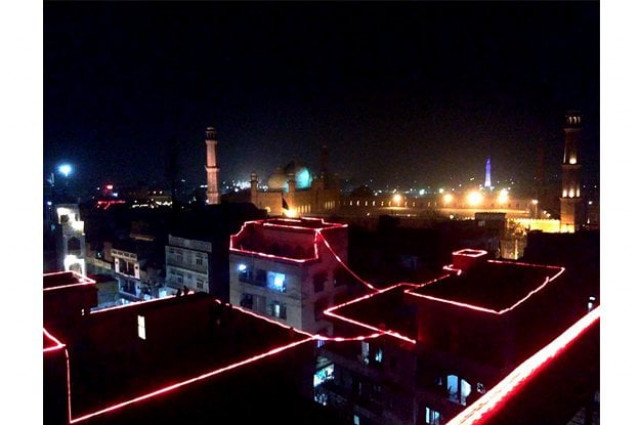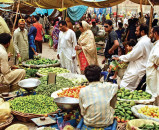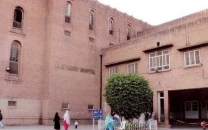Missing festivity: Lost charms of Basant
A web of LED lights has been installed in Taxali area

A web of LED lights has been installed in Taxali area. PHOTO: FACEBOOK
Awami Art Collective, a group of artists, academics and social activists vowing to keep alive the cultural tradition of the Walled City inaugurated the project at Taxali Gate.
Titled Surkh Gulaban Day Mausam Wich Phulaan Day Rang Kaaley (Black Spring), the installation consists of 1,620 metres of LED lights visible from roofs of the neighbouring houses.
Farida Batool, one of the organisers, said the installation was a web of lights recalling Basant festivities in Lahore. “The intricate web symbolises the Taxali culture affected by urban development… changing the very character of the area,” said Batool, a National College of Arts assistant professor of cultural studies.
“Instead of regulating Basant festivities, the government has chosen to ban these. This shows that the authorities are incapable of organising or regulating the festival.”
Awami Art Collective members say the ban on Basant has affected the incomes of many residents of Taxali Gate. “We have spent last month here. Those whose livelihoods and identities revolved around kite-making and Basant have been affected by the ban,” Batool said.
“The activity is a protest and a plea to curb extremist tendencies and protect the cultural identity of this country,” she said. Video documentation of the project will be exhibited as part of Curating Contemporary Art Programme at Royal College of Art, London.
Published in The Express Tribune, February 14th, 2016.



















COMMENTS
Comments are moderated and generally will be posted if they are on-topic and not abusive.
For more information, please see our Comments FAQ